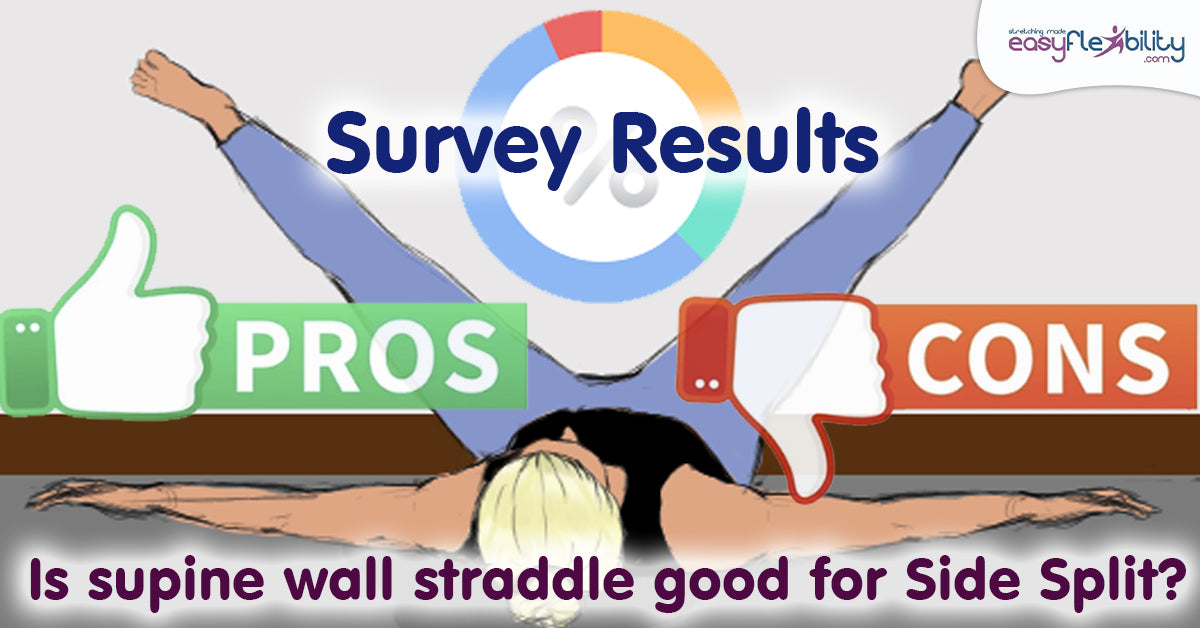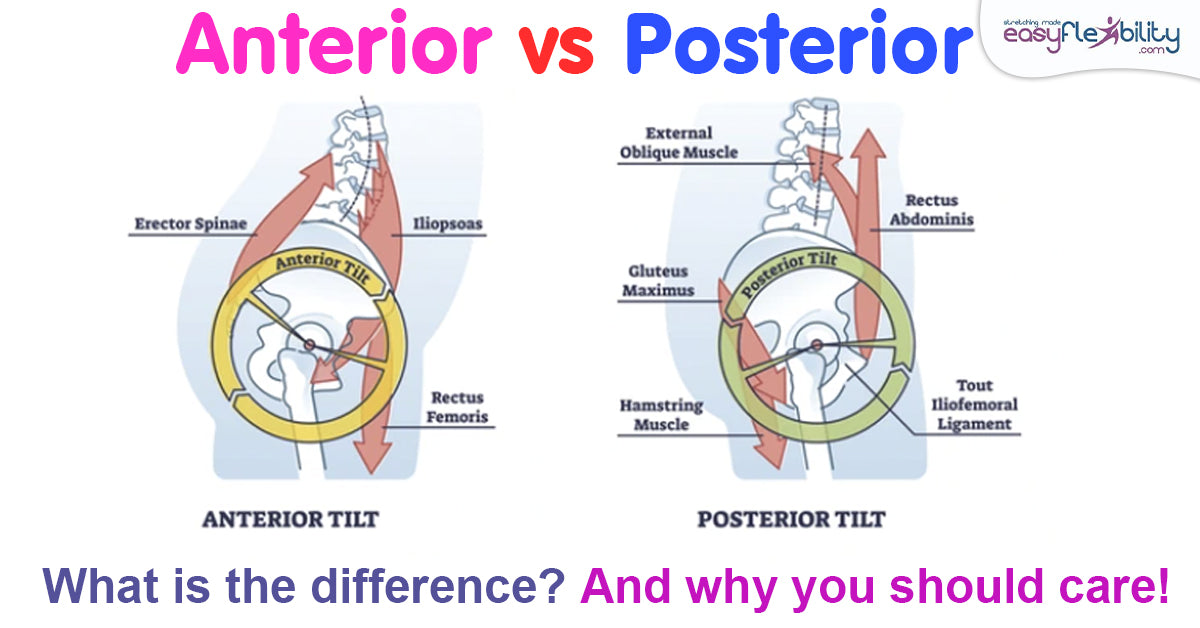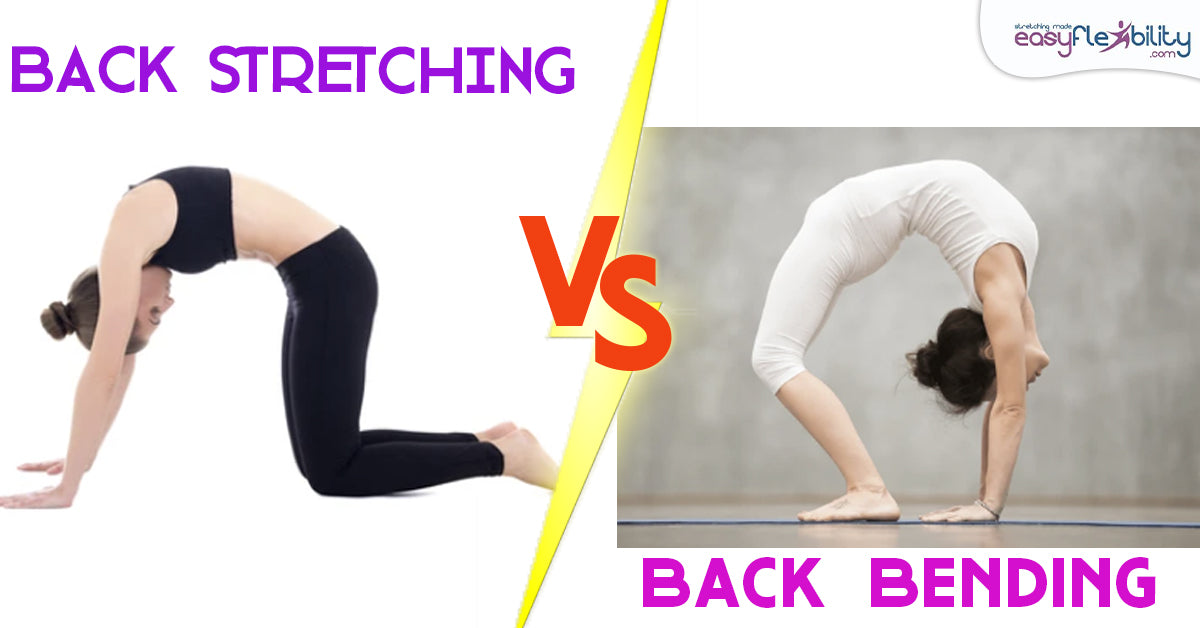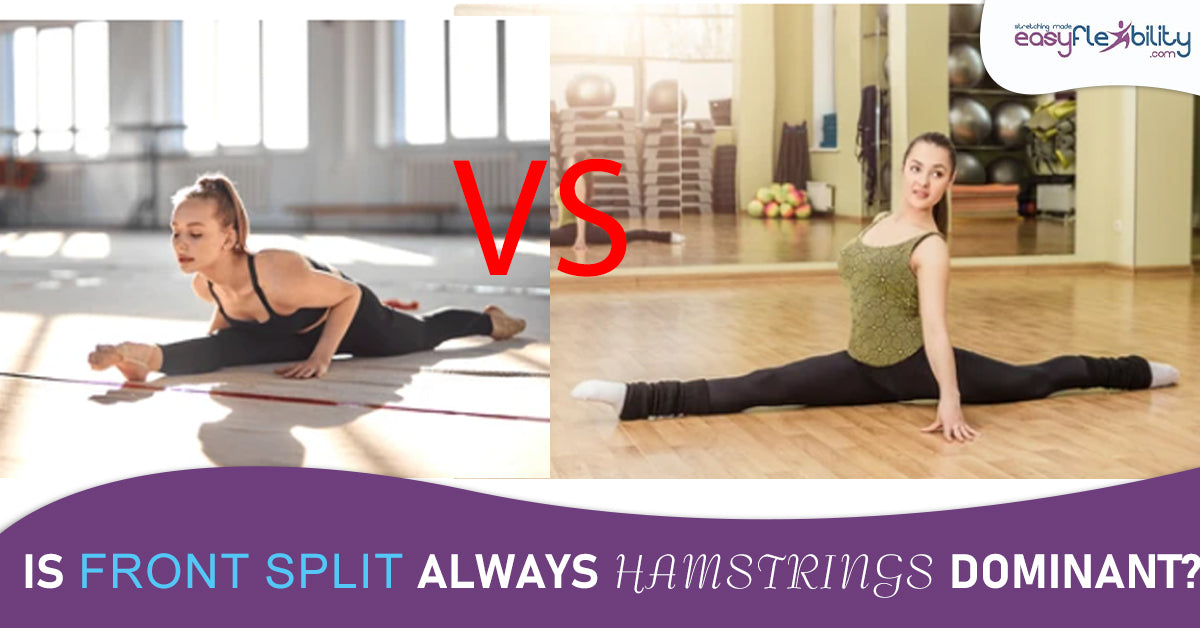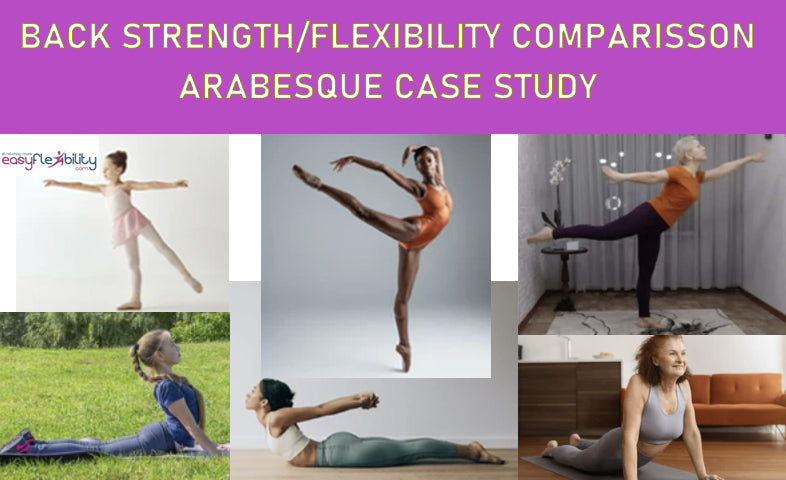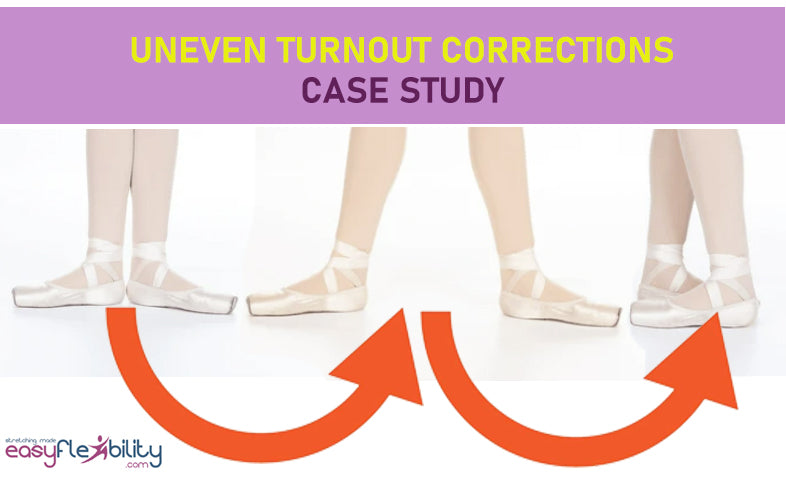Reach For It: Strength and Flexibility In Your Back and Shoulders
Posted by EasyFlexibility Team on
Have you ever tried to reach back for your foot and felt stuck?
We are going to help you with that in this next series.
One of the most commonly sought after stretches for yogis, dancers, and aerialists is to be able to reach your foot from behind, such as in a full Dancer’s Pose (Natarajasana) or full King Pigeon Pose(Eka Pada Raja Kapatonasana).

These positions require an incredible amount of opening in the hip flexors, spine extensors, and rotator cuff muscles. This article will focus on opening up the back, shoulder, and abdominal muscles to accomplish these challenging positions. Whether you are a performing artist or merely seeking the physical challenge from such a practice, you can benefit from trying these out to reach a little further behind you.
Because the lower body can vary in many different ways to perform this action (standing, splits, upside down, etc.), we are just going to focus on the actions of the back, shoulders, and front body. Let’s first break down the muscles used to achieve this position.
The muscles that are stretching during these actions are:
- Rectus Ambdominus
- Psoas Major
- Rhomboids
- Pectoralis Major and Minor
- Triceps
- Lattismus Dorsi
- Posterior Deltoid
The contracting muscles include:
- Spine extensors
- Serratus Anterior
- Trapezius
- Infraspinatus
- Teres Minor
- Anterior and Middle deltoid (when getting into the position)
Check out this anatomy video full Dancer's Pose to get a visual breakdown of each muscle involved in this position:
Now, let’s break down the actions it takes to get into this position.
- Set up your supporting leg (standing or in Half Pigeon is most common) and keep it grounded and strong so that you do not fall over
- Bend your back leg, bringing the foot in toward the hip while simultaneously reaching back with the same hand.
- Position your hand so that you “flip your grip” as you rotate through your shoulder joint to bring your elbow up. You can do this by holding the inside or outside of your foot. You may find you have preference for one over the other- try both, and see which works better for you.
- Keep your chest open as you begin to rotate your elbow upward to the sky.
- Bring your other hand back to your foot and re-position your first hand so that both hands can grab the foot evenly.
- Come out of the position carefully and with control.
To achieve this much sought after position, we can start with a back extension exercise that will strengthen the back muscles and stretch the rectus abdominus, obliques, and psoas muscles. Remember, you have to find a balance between your strength and flexibility in order to achieve and maintain postures such as Full Pigeon Pose.
We are all probably familiar with the Cobra stretch, but here we will apply kinesiological principles to it using our Target and Leverage system in this next exercise called ~Perception~. Here is how to perform this exercise:
- Stay lying supine, on your belly
- Begin to lift your chest off the ground into the cobra position. Arms will be stretched out in front of you, shoulders down the back and chest broad and open.
- Twist to the right, looking over your right shoulder, to move into the Leverage position. Try to twist from as low in the spine as possible and look back over your shoulder.
- Return to face the front and lift yourself up higher. This is your Target, which will continue to grow as you perform this exercise.
- Repeat to the left, and come up higher again in the center in your Target position.
- Do this at least 5 times on each side
- Rest in Child’s Pose when you’re done.
The video below displays this exercise in detail. We are working on the second exercise described in this video which includes rotation of the spine.
In addition to back mobility and stability, we also need our chest and shoulders to be open. Tune in next week for a new exercise targeting the shoulders to help you accomplish the rotation action this posture requires. We will also go over troubleshooting the exercise described above for maximum results.
Let us show you how to achieve the Natarajasana Pose Fast, Safe and Easy!
Our programs are scientifically based and created by
a world-renowned fitness & flexibility expert Paul Zaichik
This position calls for deep flexibility of the hip flexors and flexors of the spine. Moderate hamstrings flexibility of the supporting leg is called upon as well. The pose can be helped by having flexible shoulder extensors.
This program avoids the pain of the stretch reflex, allowing for much quicker and safer flexibility gains. Having lengthened each tissue by itself, the pose is put back together. Most people see amazing results just after the first time of trying this program.
Click here to learn more about out Natarajasana program!
Check out what other customers are saying about our Natarajasana program!
© ElasticSteel Corp., EasyFlexibility, Paul Zaichik, et. El., 2022. No part of the materials available through ElasticSteel.com, EasyFlexiiblity.com, site may be copied, photocopied, reproduced, translated or reduced to any electronic medium or machine-readable form, in whole or in part, without prior written consent of Paul Zaichik EasyFlexibility.com, Elasticsteel.com.. Any other reproduction in any form without the permission of Paul Zaichik EasyFlexibility.com, Elasticsteel.com is prohibited. All materials contained on this site are protected by United States copyright law and may not be reproduced, distributed, transmitted, displayed, published or broadcast without the prior written permission of Paul Zaichik, EasyFlexibility.com, Elasticsteel.com.
Share this post
- 0 comment
- Tags: aerial arts, backbending, circus, dancers pose, easyflexibility, full pigeon pose, kinesiological stretching, natarajasana, shoulders
0 comment





